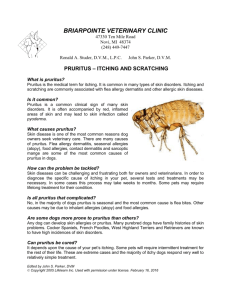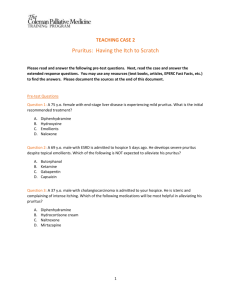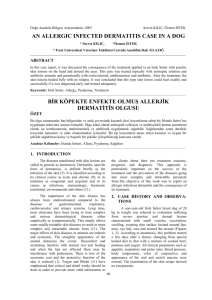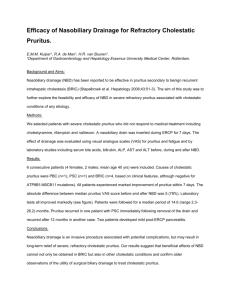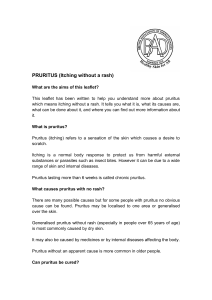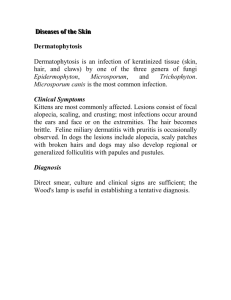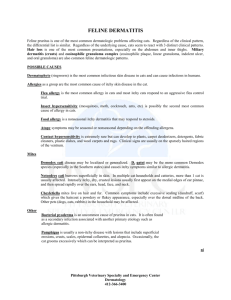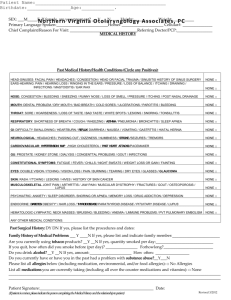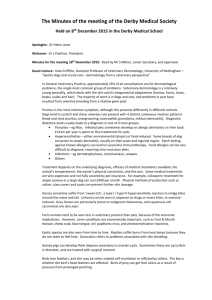PRURITUS – ITCHING AND SCRATCHING
advertisement
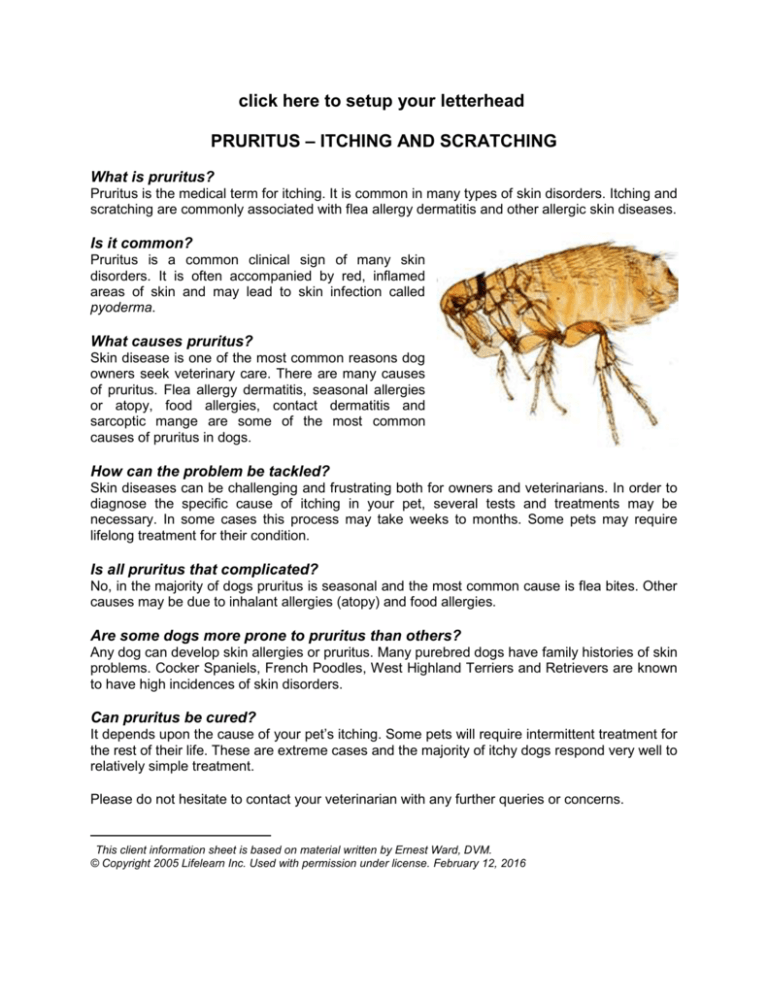
click here to setup your letterhead PRURITUS – ITCHING AND SCRATCHING What is pruritus? Pruritus is the medical term for itching. It is common in many types of skin disorders. Itching and scratching are commonly associated with flea allergy dermatitis and other allergic skin diseases. Is it common? Pruritus is a common clinical sign of many skin disorders. It is often accompanied by red, inflamed areas of skin and may lead to skin infection called pyoderma. What causes pruritus? Skin disease is one of the most common reasons dog owners seek veterinary care. There are many causes of pruritus. Flea allergy dermatitis, seasonal allergies or atopy, food allergies, contact dermatitis and sarcoptic mange are some of the most common causes of pruritus in dogs. How can the problem be tackled? Skin diseases can be challenging and frustrating both for owners and veterinarians. In order to diagnose the specific cause of itching in your pet, several tests and treatments may be necessary. In some cases this process may take weeks to months. Some pets may require lifelong treatment for their condition. Is all pruritus that complicated? No, in the majority of dogs pruritus is seasonal and the most common cause is flea bites. Other causes may be due to inhalant allergies (atopy) and food allergies. Are some dogs more prone to pruritus than others? Any dog can develop skin allergies or pruritus. Many purebred dogs have family histories of skin problems. Cocker Spaniels, French Poodles, West Highland Terriers and Retrievers are known to have high incidences of skin disorders. Can pruritus be cured? It depends upon the cause of your pet’s itching. Some pets will require intermittent treatment for the rest of their life. These are extreme cases and the majority of itchy dogs respond very well to relatively simple treatment. Please do not hesitate to contact your veterinarian with any further queries or concerns. This client information sheet is based on material written by Ernest Ward, DVM. © Copyright 2005 Lifelearn Inc. Used with permission under license. February 12, 2016
